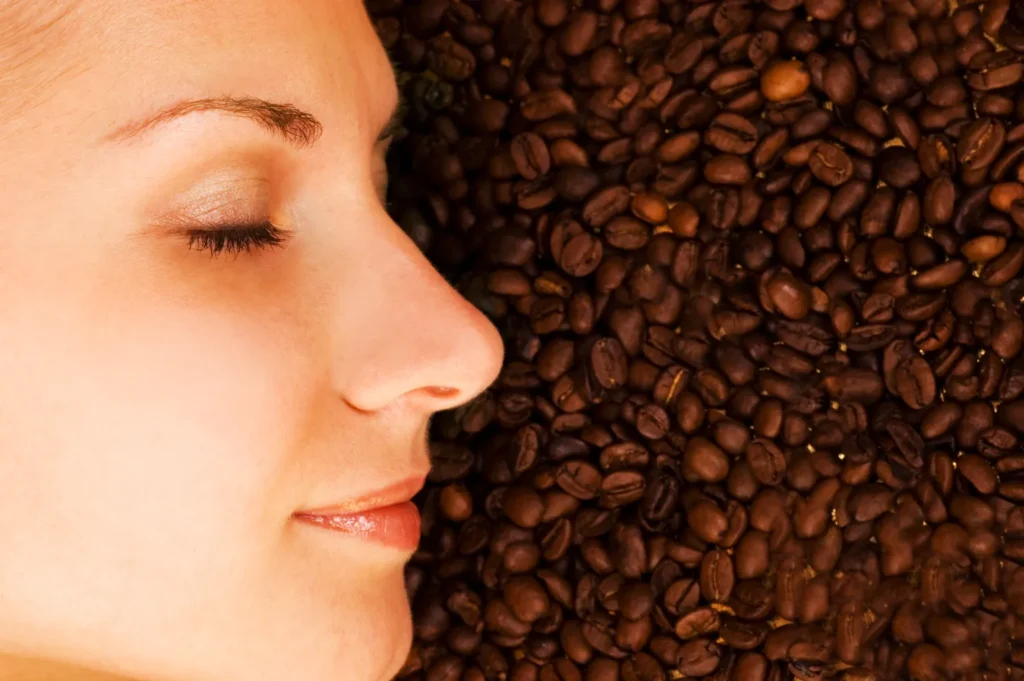Caffeine is a substance present in plant species such as tea leaves, cocoa pods, some nuts, and also in coffee beans.
This component, which has a bitter taste, is often found in beverages and can stimulate energy in people who consume it in some way.
A publication from the Department of Pharmacology and Neuroscience Program at the University of Colorado revealed that this is because caffeine can block the effects of adenosine, a neurotransmitter that relaxes the brain.
For this reason, the substance present in some teas or coffee drinks can stimulate people’s central nervous system, causing them to feel more energetic.
In addition to the above-mentioned effects, the substance acts as a diuretic in the body. According to information from the MedlinePlus portal, this means that the component can help the body get rid of water and salts.
Positive effects on the skin
Caffeine can also have positive effects on the skin, says Flori Gramajo de O’ Meany, professor of facial treatments in the Aesthetic Technician course at Galileo University.
The specialist comments that the substance has a draining effect on the layer of the body, which helps prevent fluids from accumulating in certain areas.
Gramajo says that caffeine also has a vasoconstrictive effect, which also helps to absorb retained fluids.
One of the most important characteristics of this ingredient is that it can mobilize and reduce amounts of fat due to its lipolytic effect, says the professor. This is due to the so-called xanthines.
According to clinical dermatologist Maureen Barahona, xanthines are substances that can be found in different plant species, including caffeine.
The doctor says that these substances applied to the skin can also help reduce cellulite, as they increase heat production in the areas where they are applied, increase collagen synthesis, and improve microcirculation.
“Among the pillars that intervene in the formation of cellulite is not only the poor accumulation of fat or fat herniation but also problems at the level of the skeletal system. That is why caffeine is an option since it stimulates lymphatic drainage and improves the microcirculation of blood vessels,” explains Barahona.
Cellulite is also known as gynecoid lipodystrophy, edematous panniculopathy, or localized lipodystrophy.
“It is a disorder that occurs when fat herniates, and it is very common in women after adolescence. It usually appears in areas close to the buttocks and thighs. Although it is very common, it is not considered a disease,” adds Maureen.
Given the need for many people to treat cellulite, both Barahona and Gramajo respond that caffeine is a good option, but not a solution.
“Nothing is magic. We must accompany treatments to improve the appearance of the skin with a balanced diet and abandon a sedentary lifestyle, avoiding the consumption of toxic products such as cigarettes or alcohol,” says Flori Gramajo.
What is said about applying caffeine to the skin?
Although caffeine helps reduce fat and mobilize fluids, specialists indicate that those who want to try it should first consult a specialist – whether in dermatology or aesthetics – since the component should not be applied directly to the skin.
Flori Gramajo says that it should be through cosmetic products approved by health authorities and containing a dose of 5 percent caffeine.
Sometimes people search the internet for options to achieve better skin. Often, the aforementioned coffee masks stand out. Although these searches have become popular, the specialists consulted do not recommend applying them.
Gramajo states that these can often contaminate the skin or cause allergies. He exemplifies that, if someone has acne and uses a mask without consulting a dermatologist, their condition may worsen and bacterial proliferation may occur.
“If we apply any product that is not controlled, we can lose our balance. What we find on the Internet is not necessarily safe. We must be aware of purchasing appropriate caffeine products and always consult with specialists,” he states.
Other recommendations from the specialists
If people wish to improve aesthetic aspects of their skin, the following recommendations can be followed:
- Exfoliate. Gramajo recommends that people who want to start treating their skin exfoliate the areas they want to firm once a week, using moisturizing and lipolytic products that are approved by a specialist.
- Reduce aggravating factors. Maureen Barahona points out that factors such as stress or a sedentary lifestyle are possible causes of weight gain, which in turn can facilitate the appearance of cellulite as well. In this case, she recommends that people positively handle stressful situations, as well as encourage them to have more physical activity.
- Consult. Although cellulite is not serious, it can be treated unilaterally by a dermatology specialist, who will suggest possible courses of action to the user for treatment. Flori Gramajo suggests that many times “it is not about adding a product, but rather knowing the effects that these can have.”

